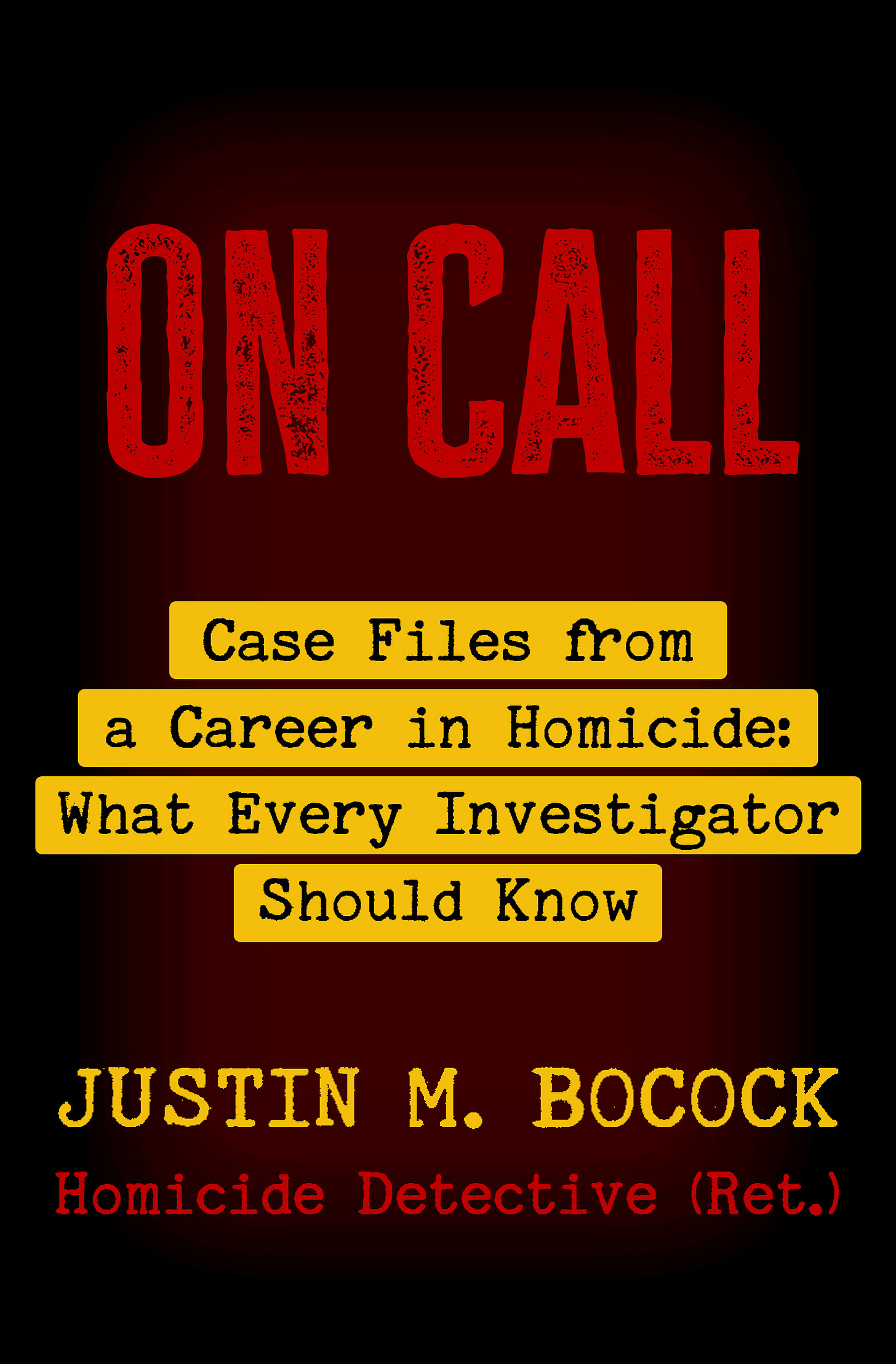In recent months, plea deals have dominated headlines and social media discussions—particularly in connection with the high-profile Idaho murder case. In my book, On Call: Case Files from a Career in Homicide, I discuss the complexities of plea agreements in homicide investigations I personally worked. The book aims to educate and provide clarity for true crime enthusiasts and curious minds alike. With that in mind, let’s explore today’s topic: “Plea or Not to Plea.”
To Plea or Not To Plea
During my law enforcement career, I taught several classes to fellow police officers and new recruits. One of my favorite classes to teach was called Criminal Justice Systems. I taught it to recruits during the second week of the twenty-week police academy. I enjoyed teaching the class because it encouraged interaction from the recruits—I liked hearing their responses and learning about their perceptions of the criminal justice system.
One portion of the class covered the legal process known as plea bargaining. I began that block of instruction by surveying the class on whether they thought plea bargains were a good thing. In the fifteen years I taught the class, very few recruits believed plea bargains were advantageous for society. When asked to explain their reasoning, the common response was that plea deals seemed to let offenders receive a lesser punishment than they deserved. I would challenge the class by asking if anyone thought plea bargains could be a good idea. The recruits would often glance at each other, unsure if they had answered incorrectly. Any support for plea agreements usually felt forced—an attempt to get the “right” answer.
Society tends to believe that the court and trial process is where the truth is revealed. In reality, criminal trials aren’t about uncovering the absolute truth—they're about what is legally permissible to be presented as truth. I have been involved in many criminal investigations that ended in plea agreements. From my experience, there is no guarantee that a defendant will accept a plea. In law enforcement, there’s a perception that if a case is solid, the defendant will plead out—and that if it goes to trial, the officer or detective must have made a mistake. That simply isn’t true.
Let’s start with the truth: a police officer or detective documents the facts of a case—statements from witnesses, forensic results, and crime scene observations. These are all facts. But when a case is presented to a jury, not all of that information may be admitted into the official record. Hearsay—statements made by third parties—is generally not allowed in criminal trials. Sometimes, even statements that are highly incriminating to the defendant are excluded. This is especially common in domestic violence cases. I’ve had witnesses barred from testifying because the court determined their statements would make the defendant appear to “really hate women.” In many cases, co-defendant statements are also inadmissible. There are extensive legal rules about what evidence can be presented in court.
The strength of a case does not always determine whether it will conclude with a plea agreement. In drug cases, defendants are typically charged with multiple counts—possession of drugs, paraphernalia, conspiracy, possession with intent to distribute, etc. These cases are often easier to plead because some charges can be dropped while still holding the defendant accountable for the remaining ones. In armed robbery or homicide cases, there are usually only one or two charges, which limits what can be negotiated away. Additionally, many defendants are repeat offenders and, if convicted, face decades in prison due to prior convictions. In those cases, it often makes sense for the defense to take the risk of going to trial—hoping the police made a mistake or that the jury might be sympathetic.
Perhaps the most important factor in plea agreements is the jury itself. Juries are composed of everyday people. And everyday people can be biased and hold strong, unshakable opinions. This isn’t an attack on society—if we’re honest, it’s simply the truth. We all carry personal beliefs and often think we are right. Police officers and prosecutors receive extensive training in recognizing implicit and explicit bias; I have taught these classes to active officers. They are required by law and policy to prevent bias from influencing their decisions. Citizens, on the other hand, are not bound by those same rules. Jurors are allowed—consciously or unconsciously—to judge a witness or defendant based on personal feelings. These unfounded, sometimes biased opinions can be enough to convict or acquit a defendant. Anyone who has been through a criminal trial knows that you never know what a jury will decide. Prosecutors and defense attorneys must factor this unpredictability into their strategies. That’s where plea agreements can benefit both sides. They can deliver justice to victims while also giving a defendant a reduced sentence—especially in cases where a jury might otherwise hand down a far harsher verdict simply because they didn’t like the defendant.
In my recruit academy classes, I always end my discussion on plea agreements with a positive note. As imperfect as the American judicial system is, it remains the best system the world has ever known. As a society, we need to be honest with ourselves about the realities of the justice process, recognize our own biases, and strive to listen and judge with fairness and impartiality.
--
Justin M Bocock
Get your copy today - On Call


